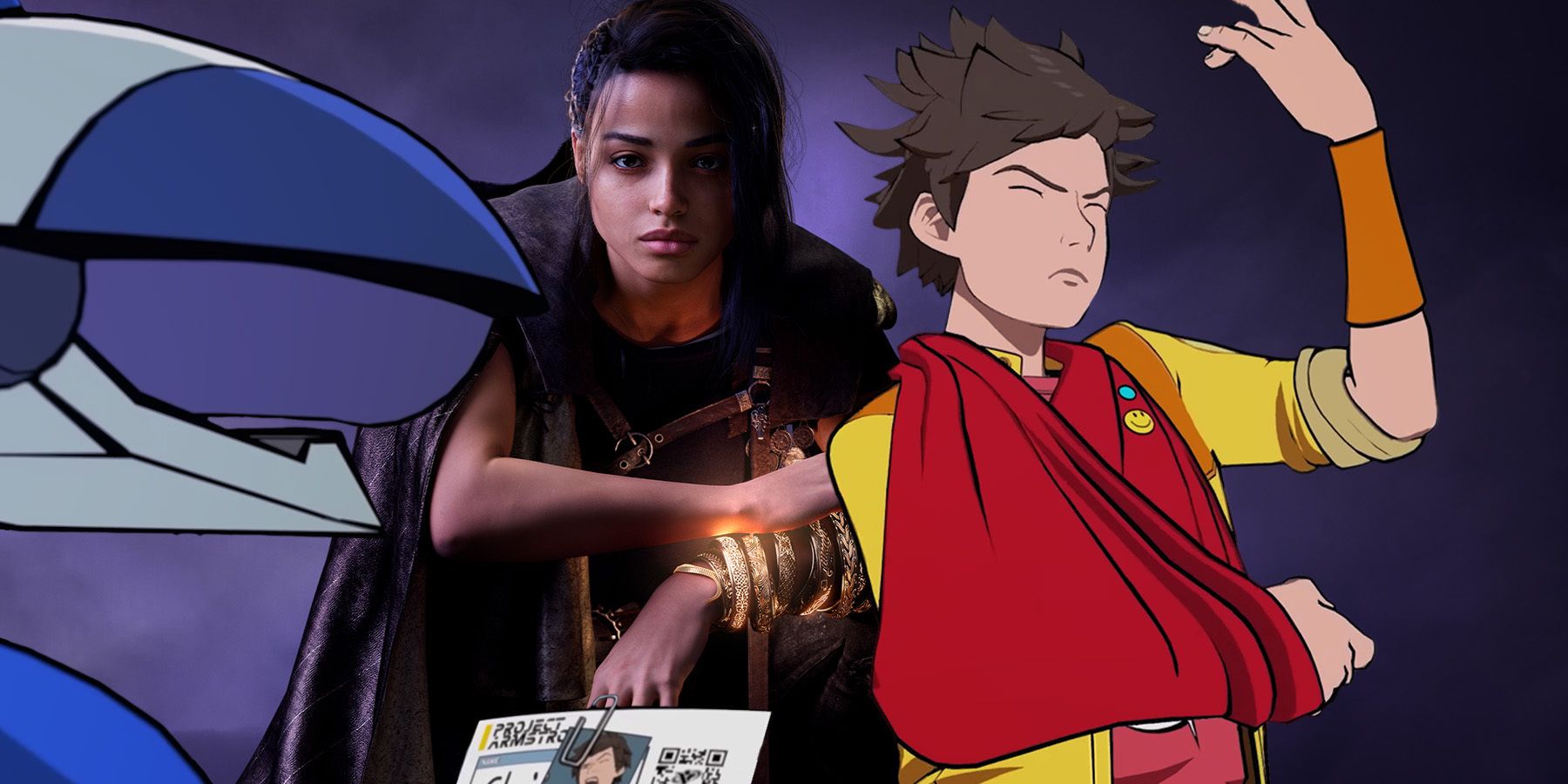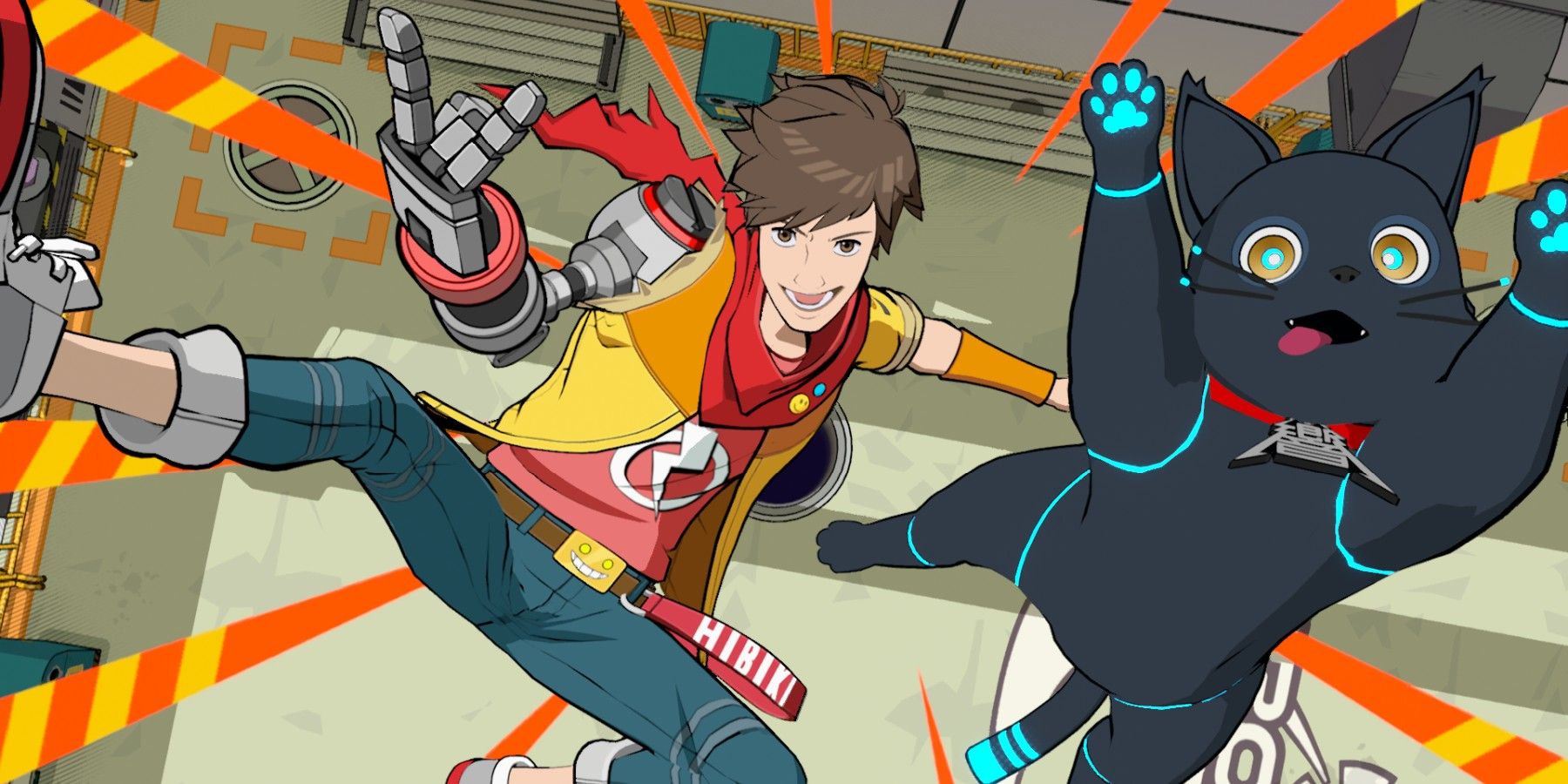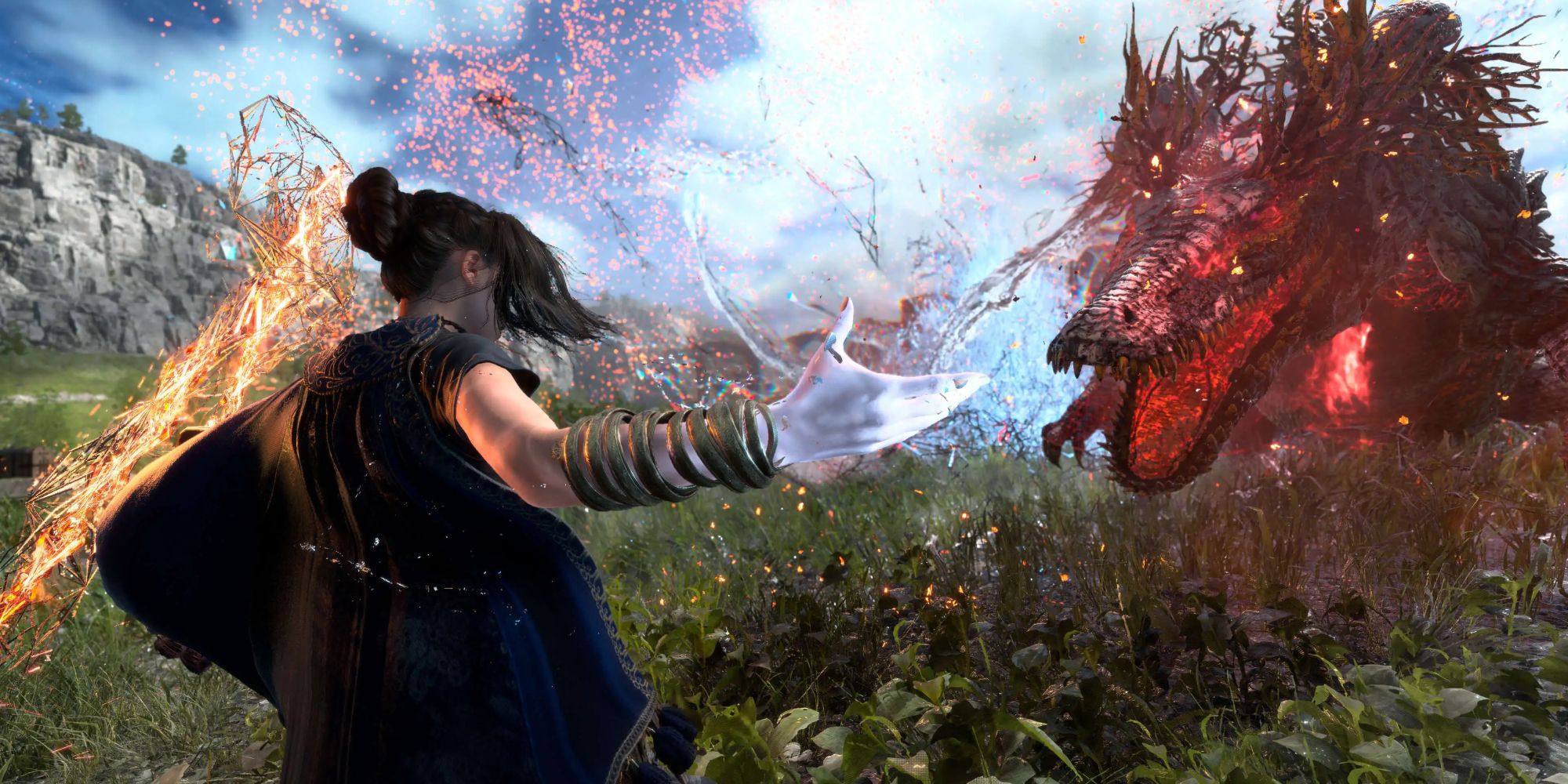POTENTIAL SPOILERS AHEADForspoken had an underwhelming launch on January 24, one that was perhaps overshadowed even more when Bethesda and Tango Gameworks shadow-dropped Hi-Fi Rush after the Developer_Direct on January 25. If largely due to the proximity or perhaps their opposing console exclusivity, both Hi-Fi Rush and Forspoken have drawn comparisons since their releases. One major point of contention has, seemingly, been the undeserved criticism of Forspoken's dialogue vs. the accepted nature of Hi-Fi Rush's own sometimes cringeworthy dialogue. Most comparisons are only surface level though, and there is one big factor these comparisons seem to skip over: context.
It should be noted, first, that Forspoken's dialogue is not that bad. A lot of hate is directed Frey's way, perhaps because she is the main character, but some of the worst dialogue actually comes from Cuff. There is also an option to lower how much dialogue the two will speak with each other, and there are definitely bigger issues than that. Forspoken reviews have proven how generic the open world feels and how lackluster the story is, yet many still point toward the dialogue. Again, Forspoken's dialogue is not bad—it's out of place. One could argue this is done to embrace its Isekai genre, but that's not really the case.
Hi-Fi Rush's Dialogue Fits Into the Game World
The Hi-Fi Rush presentation at the Developer_Direct introduced fans to the game with a classic, if outdated and somewhat cringey "I bet you're wondering how I got here" trope. It then backtracks and fans are introduced to zany action, nonsensical moments, and yes, a few strings of silly and somewhat cheesy dialogue. Because of the shadow drop, fans were able to check out the game shortly after this, and that first hour alone is enough to tell fans what this game is: it's a unique rhythm action game that doesn't take itself so seriously. After all, an outdated music player powers the abilities of Hi-Fi Rush protagonist Chai, a large number of the characters are seemingly randomly named after teas, and there's a robotic cat that becomes a floating ball.
Everything operates to a beat, including attacks and notably even Chai's footsteps. And that fun core gameplay is supported by absolutely nothing in the game being serious. Players are beating up fridges, the defensive guards are nowhere near threatening, and the first antagonist players encounter is reminiscent of a Borderlands character. That antagonist is replaced by the first boss, QA-1MIL while some epic rock music plays in the background. This boss will have weak spots and other messages displayed on its head, and the entire encounter is a mixture of epic, music-oriented attacks and funny moments. All of this is to say that the game makes sure players know nothing is to be taken seriously, keeping all of this up as the game unfolds, but if nothing is to be taken seriously, neither should the dialogue.
Yes, Hi-Fi Rush's dialogue has cringey moments like Forspoken's, but even the most out-there moments of dialogue fit into a world where refrigerators teach combos. Hi-Fi Rush's dialogue works because of the context and the trappings of the game that surrounds the dialogue, and for the most part, that's where Forspoken's dialogue fails. Hi-Fi Rush's worst dialogue still fits into the game world, but Forspoken's worst bits take players out of it. It's an immersion issue more so than a quality of dialogue issue.
Forspoken's Dialogue Takes Players Out of the Game World
It bears repeating that Forspoken's dialogue is not that bad, but the worst of it takes players out of the moment. That's because these attempts at humor are so misplaced or ill-paced in the grand scheme of things. Unlike Hi-Fi Rush, Forspoken is a serious story with real stakes, so the jokey dialogue never really meshes with that. Frey and Cuff do not work well together, not for most of the game, and that creates a problem. It's as if Frey is Kratos and Cuff is Atreus, but neither has the necessary chemistry to pull off the required dialogue and acting as seen in God of War Ragnarok. They both lead the game, but they have very little chemistry to work with, whereas the world of Hi-Fi Rush oozes chemistry and works so well in and of itself.
The thing is, games or any story with incredible stakes need moments of levity that balance out the tension. Forspoken strives to achieve this, but falls short at every turn. Neither Frey nor Cuff is good comic relief, so every time it happens, it feels forced. That sense echoes throughout the dialogue, taking players out of the game world and making the dialogue itself seem worse than it is. It comes down to context and delivery; Hi-Fi Rush nails it but Forspoken doesn't. Without delving too far into spoiler territory, it should be noted that the height, climax, and final boss of Forspoken's stakes are undermined by this dialogue even more so, instantly making the threat the entire game builds up to feel lackluster.
Context is key when it comes to how Hi-Fi Rush's and Forspoken's dialogue work in their perspective game worlds and sit with audiences. But, even that in and of itself isn't an end-all-be-all of the situation. The nature of each game means some fans will connect more with Chai and understand his dialogue than they will with Frey, but vice versa too. Some fans will be able to connect with Frey more so than Chai, as neither game is bad and ultimately should not be judged on the worst elements of its dialogue, but the greater context of the game as a whole.
Hi-Fi Rush is available now on PC and Xbox Series X/S.



